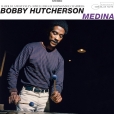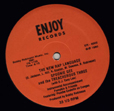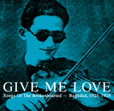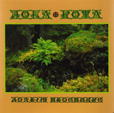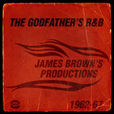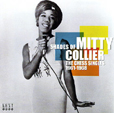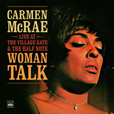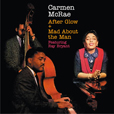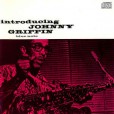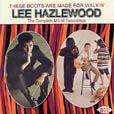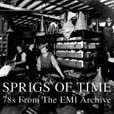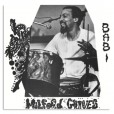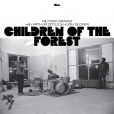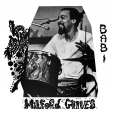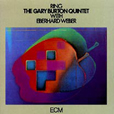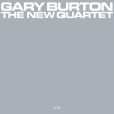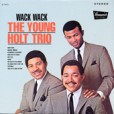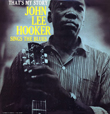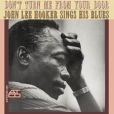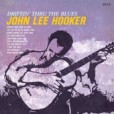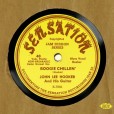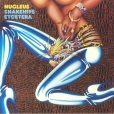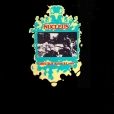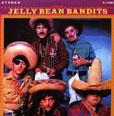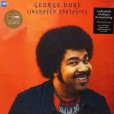Your basket is empty

From 1969, with Harold Land, Stanley Cowell, Reggie Johnson, and Joe Chambers, coolly charting a path all their own, out of the tumultuous decade.
‘Beautiful, haunting… spiritual reflection is sung with carnal force, songs of romance are rendered like hymns. For a few moments, on these ancient records, Baghdad sounds like paradise’ (Rolling Stone).
Nuff scorchers.
All fifteen A-sides, along with nine B-sides, by one of the 1960s very greatest soul singers.
Two LPs of mid-sixties club dates — Woman Talk (with Feelin’ Good), at The Village Gate, and Live And Wailing, at The Half Note.
The two 1957 LPs — the first more intimate, with quartet and trio settings (four with Carmen playing her own piano accompaniment); the second an all-star session, with Charlie Shavers, Jimmy Cleveland amongst em.
‘A wicked sense of pacing, of beauty and absurdity, and an instinctive ear for musical action’ (The New York Times). ‘There’s no theme or continuity… unless you count sheer awesomeness’ (Fader).
‘The long-awaited first reissue of one of the most legendary albums in the history of free music. Recorded live in concert in 1976, when Graves’ trio with saxophonists Arthur Doyle and Hugh Glover was at the height of its powers, Bäbi is a testament to the absolutely unique approach the drummer had established for himself. He had reconfigured the drum kit, removing the second heads on all the drums and replacing the snare with two toms, which allowed him a much more nuanced sense of indirectness in his multi-directional adventures in time. The track Ba remains one of the most astonishing feats of percussion alchemy ever waxed, as funky as ten slap bassists and as free as an exploding grenade. Doyle and Glover are incendiary, too, inspired by Graves to new and shocking heights of achievement, their hoarse cries and whistling split-tones carried to thrilling plateaus on the energy of Graves’ hands and feet.
‘In 2017, Graves discovered a previously unknown tape in his archives featuring the same trio at its inception, in home recordings made seven years earlier in 1969. Graves pummels a huge gong while Glover plays an instrument that, after sounding like none ever known, turns out to be bass clarinet. Extreme music recorded up close and very hot, it is among the most searing sessions never heard. Until now.’
Milford Graves with Arthur Doyle and Hugh Glover, in the weeks leading up to their March 1976 recording of Bäbi.
Graves recorded these sessions himself in his legendary Queens basement laboratory and workshop. Outstandingly, the first two sides feature Graves on drums alongside Glover on klaxon and a Haitian one-note trumpet called a vaccine — “it’s important to keep that tribal possession-state feel… as in the Divine Horsemen of Haiti,” he says in the sleevenotes — and especially riveting, scorching tenor playing by Doyle, even by his own standards.
Mick Goodrick guitar, Pat Metheny guitars, Steve Swallow bass guitar, Bob Moses percussion, Eberhard Weber bass.
Luminessence Series.
Utterly transfixing and thrilling, this is blues to the limit, a kind of avant-garde primitivism.
‘With an approach that was drawn from the Mississippi modal tradition, where you change chords only when the spirit moves you, variety was never the aim. Intensity was.’
For lyrics, too, Hooker is in the moment, with roughly amplified reflections about despair, sex and booze, rent and dancing; the places and faces of Detroit. The singing is frank and emotional but sly. He never lets up stomping on a wooden pallet, quarter notes with one foot, eighth notes the other.
Returning to the tapes, Ace has got this unmissable music sounding better than ever. Nineteen previously-unavailable alternative takes never drag, but deepen its mesmeric spell.
Truly crucial stuff.
